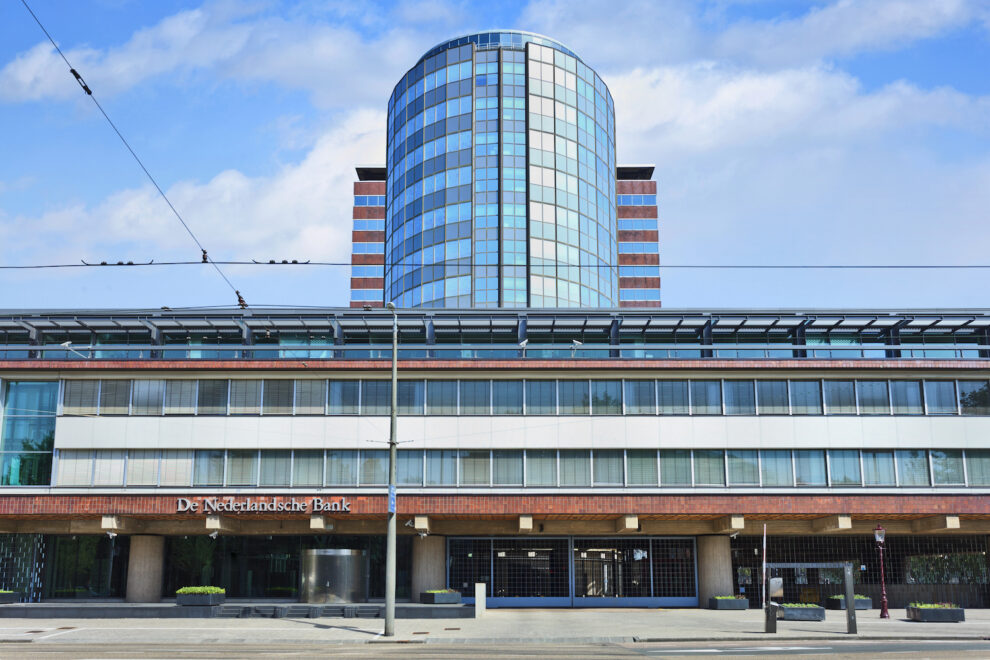Despite signals that the fall in housing prices in The Netherlands has stalled, a new decline in home sales prices is possible, said Klaas Knot, the head of De Nederlandsche Bank (DNB), the Dutch central bank. « I cannot rule out that prices will go up for a few months now, but will come down again later for a few months, » he said in conversation with ANP. He also said that the period in which wages have been rising faster and faster seems to have come to an end.
Last year and early this year, the average sales price of owner-occupied homes became considerably cheaper. This price drop was mainly due to rising mortgage interest rates, which reduces the amount of money many people can borrow to buy a home.
But the latest figures on the housing market indicated that prices are actually picking back up again after months of decline. Owner-occupied homes are still cheaper than a year ago, but home buyers are paying more compared to earlier this year.
The development of housing prices is currently not so easy to predict, Knot said. « Seasonal patterns also play a role. It usually doesn’t go in a straight line. » The DNB boss also acknowledged that he had actually expected a larger price correction before prices started to rise.
He no longer foresees « no dramatic fall » in housing prices. « The Dutch have too much cash for that. » Knot emphasized that unemployment is still « super low, » and, as a result, most people still have jobs, and therefore, money to spend.
But Knot is anything but optimistic about the supply of housing on the market, because the Netherlands is struggling with an increasing housing shortage. He said it was difficult to have positive feelings about the state of the housing market. « There are far too many Dutch people who are being left out. »
First-time buyers have great difficulty finding an affordable home. More homes really need to be built, because that is the only way to solve the housing shortage, he said.
« We are now seeing that residential investors are withdrawing. As a result, rental properties are being sold as owner-occupied properties. But that shift ultimately solves nothing, because more homes will not be added, » he noted. « It is at the expense of the free rental market. But that is very important for the flow. The free rental market is actually the lubricant for the housing market. »
There is still a bright spot. Knot is not concerned about the housing market purely with a view towards financial stability in the Netherlands. “The situation now is very different than in the aftermath of the financial crisis.” This is because, according to previous research by DNB, even with a significant price correction, the mortgages of most households are unlikely to fall « underwater. »
DNB boss sees end of period with increasingly faster rising wages
Knot also spoke about the recent period of dramatic increases in wages, saying that he sees the « first signals of decreasing wage pressure. » He called this « encouraging » news because it reduces the risk of a wage-price spiral, where wages drive increases in inflation.
During his conversation with ANP, the central bank leader referred to recently published figures from employers’ association AWVN. This showed that wages in concluded collective bargaining agreements increased less in September than in the new collective agreements from a month earlier. « Wage growth appears to have peaked in June. In September the figures indicated a ‘low 7’ percent wage increase. That in itself is encouraging. »
Knot also based his conclusion on the new wage demands from the unions. Unlike last year, after the sharp rise in inflation due to the Russian invasion of Ukraine, the FNV labor union is no longer aiming for collective labor agreement wages that are 14 percent higher. The unions have now included ranges for the extra salary they want to demand in various sectors.
Knot said he thinks that is a good thing in principle, because he believes that there are still sectors due a significant wage increase in collective labor agreements where there has been hardly any pay raise before. But for collective labor agreements where « corrections » have already made in terms of inflation, he believes it is better not to agree on a structural wage increase that is too high. « I have always said that wage growth is welcome to restore purchasing power, but it should not hinder the desired return to price stability in the medium term. »
Earlier this year, the DNB boss repeatedly warned about the threat of a wage-price spiral. Such a scenario could occur if people had significantly more money to spend, and then they started spending more of it, and thus encouraged companies to further increase their prices. Initially, Knot was not concerned that the stronger wage increase would further drive up inflation, but he later pointed out that if the unions had their way with their wage demands at the time, a wage-price spiral was definitely on the horizon.
Knot also visited FNV afterwards, he said. « Of course, that does not mean that I now support the precise percentages of the union’s wage demands. But despite the fact that we sometimes say some things about each other in the press, there is a constructive dialogue between FNV and DNB. »
Source: NL#Times





































